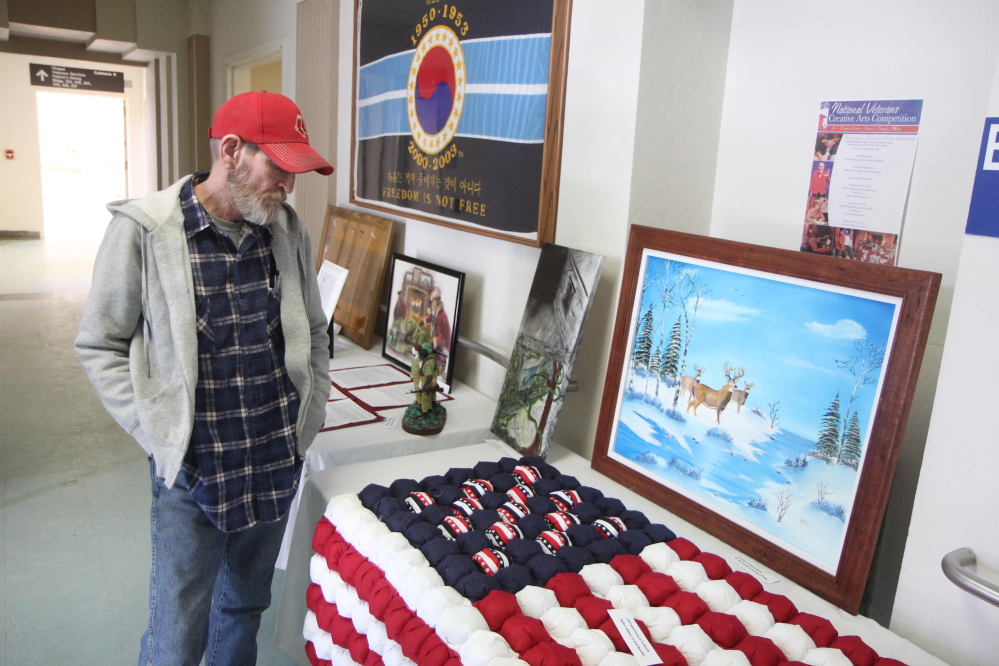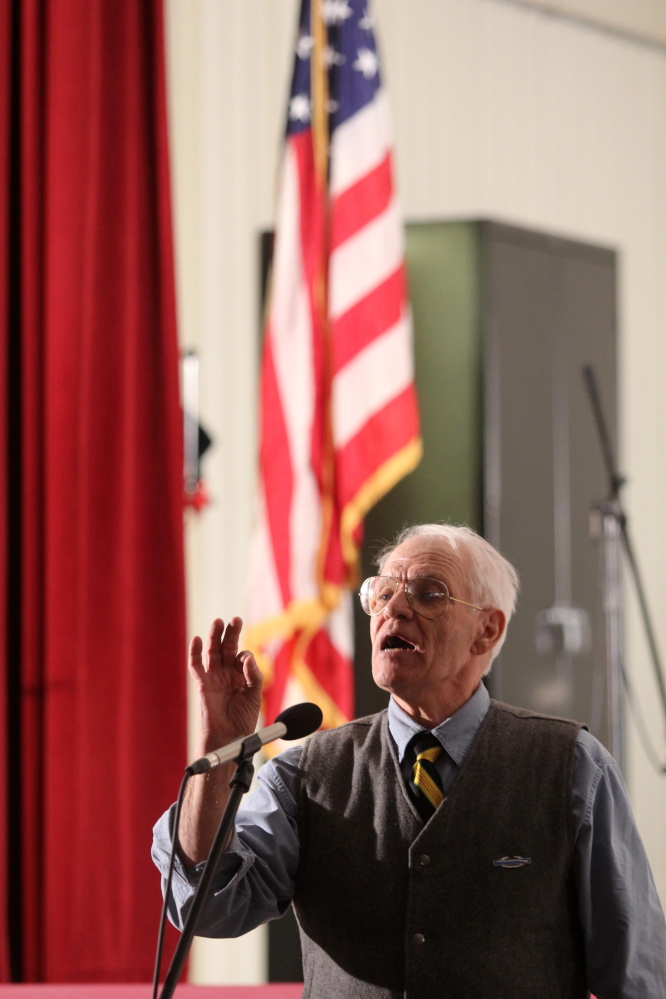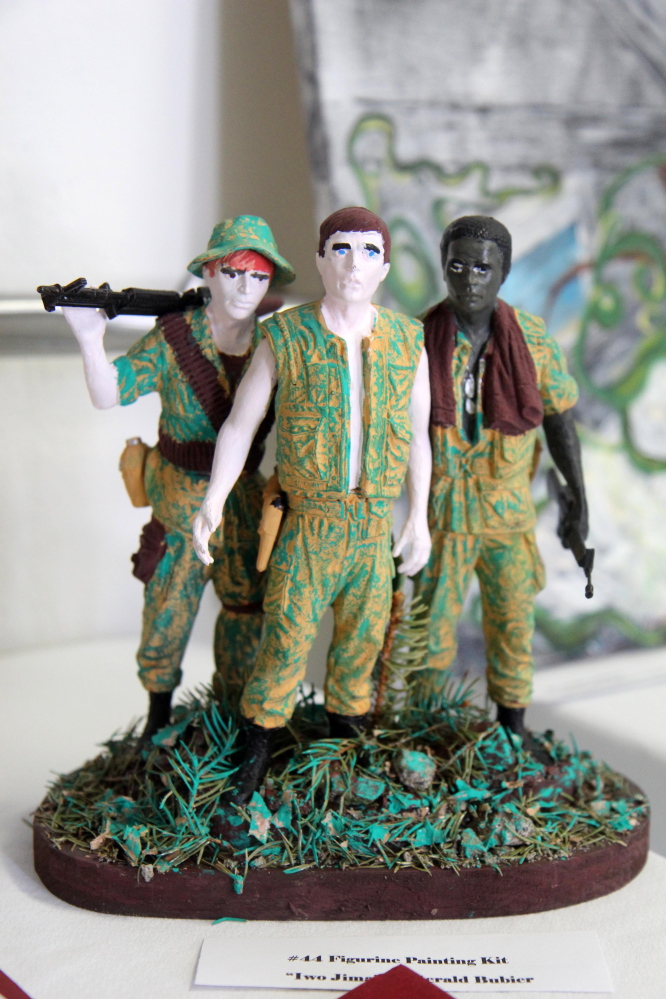AUGUSTA — It was Easter 1969, and William Fabrizio was in a foxhole in Vietnam with nothing to do but think about where he’d get his next meal and whether he’d wake up the next day.
Certain words kept repeating in the young Marine’s head. He scrawled them on toilet paper, tissues and candy wrappers. They became a hopeful poem about prayerful soldiers keeping faith on a holiday in a nearly hopeless place, amid the sounds of shots and shells.
When asked to describe the work, Fabrizio, now 66, of Augusta, said simply that it reflects “true feelings in that present time.”
“This was private,” he said. “This has been buried for years, and I mean buried.”
But at the urging of employees of VA Maine Healthcare Systems-Togus, the federal hospital outside of Augusta, he decided to frame the finished product and show it at Saturday’s Maine Veterans Creative Arts Festival, an event in its 10th year in the Maine that also takes place at veterans’ centers across the country.
This year’s festival featured 40 artists, with singers, painters, comedians, poets and woodworkers among them, many of whom could move on to a national festival later this year. James Doherty, a spokesman for Togus, which puts the Maine event on with the American Legion Auxiliary, said more artists participated this year than ever before.
“It’s another way for veterans to go ahead and deal with some of their feelings and express them and share them with others,” Doherty said. “That’s a very positive thing.”
After a Togus therapist saw an example of Air Force veteran Holly Fleming’s painting, she told her to go to the festival. She showed an acrylic showing a window in the dark atop a lit basement window, with light shining through cracks in the building on a tree growing there.
Fleming, 37, of Poland, said painting has been a good outlet after her service, and she said her painting has a simple message: “Out of the darkness comes life again.”
“No matter how hard life knocks you down, you’ll always grow again,” she said.
Fabrizio, who said Togus has provided him with help managing post-traumatic stress disorder, said he struggles to read his poem now, and some days are difficult for him.
But on Saturday, the poem sat in front another one of his works, a wooden fretwork depiction of Jesus Christ.
“I thank him every day when I get up; I thank him every night before I go to bed,” Fabrizio said, “and I must be doing something to his liking, because I’m still here.”
Send questions/comments to the editors.




